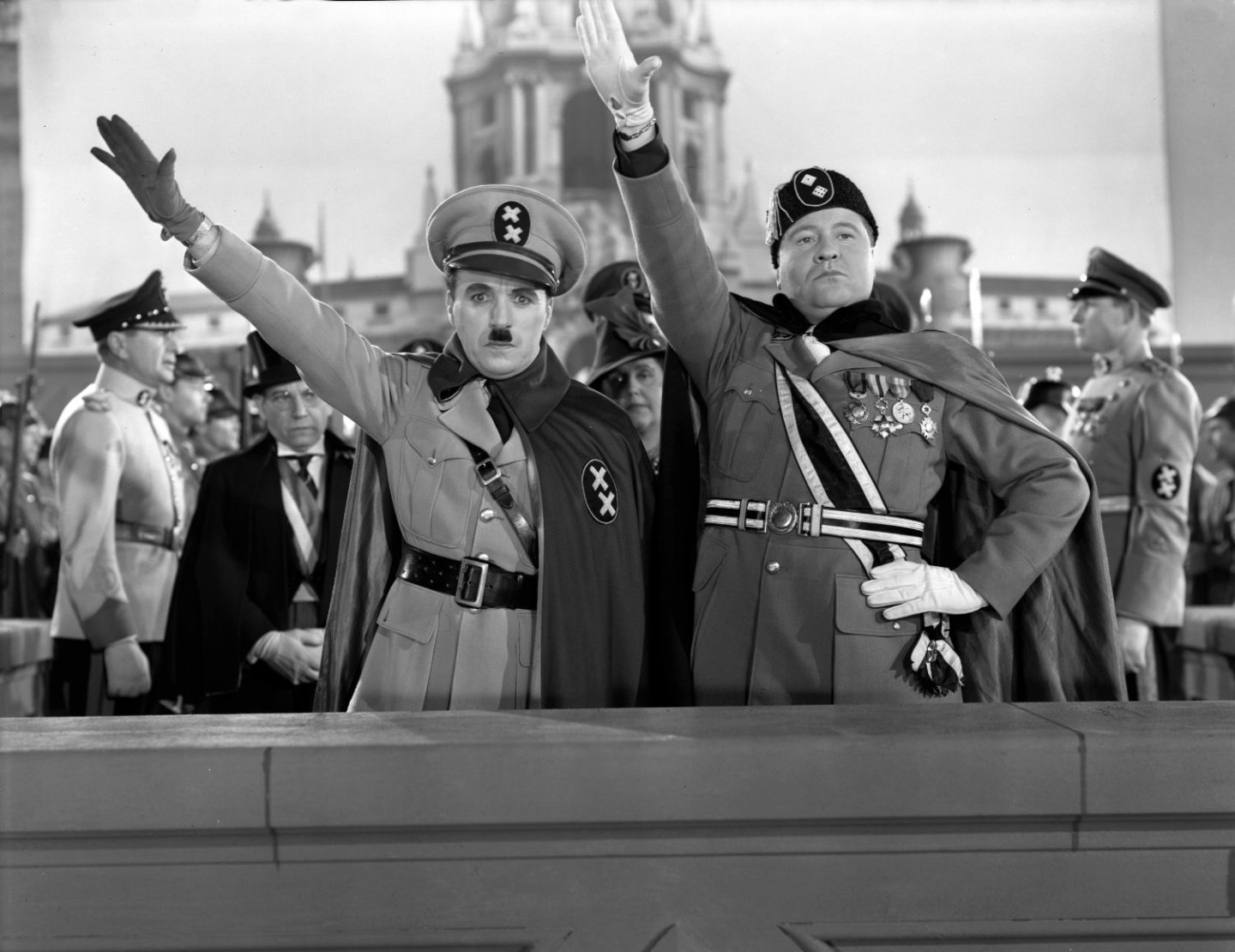Chaplin Lubitsch Hitler Trump
By Adam Cook
Can comedy save the world? I think we all know full well that it cannot. In fact, in recent months, it’s become clear that comedy can backfire. It can provide us with relief, disarm the seriousness of something, and coax us into letting our guard down. On January 20th, Donald Trump will be inaugurated as President of the United States. Was any figure made fun of more over the past year? The problem is that in today’s landscape, our media, (fake) news sources, our socializing, and our comedy are all bound up in such a way that loosens our grasp of truth and reality. So where do we turn? Might I suggest: the past.
During WWII and Hitler’s plight for world domination, two of cinema’s greatest artists made defiant masterworks that bravely skewered the fascist dictator and his hateful agenda. Firstly, Charles Chaplin directed and starred in 1940’s The Great Dictator, in which he plays a Jewish barber who coincidentally looks just like Hitler. This was a play on the fact Hitler’s moustache was identical to Chaplin’s own which he had made famous decades prior. Chaplin doubles as Hitler himself in the film, barely vailed as “Hynkel”. A mix up between the two eventually leads to perhaps Chaplin’s most famous scene, in which the barber is able to give a speech to a gigantic crowd who all think he’s Hynkel. The words from this speech still inspire today. Looking back, Chaplin’s film doesn’t feel like a naïve attempt to halt a war, but a call to compassion and reflection amidst an inevitable path to death and destruction. It’s a film that aches with pain and finds a deep sadness within the hearts of men who thirst for power.
In 1942, Ernst Lubitsch released one of his greatest achievements, To Be or Not to Be, about a theatre troupe whose skill for impersonating Nazis in their own anti-Nazi play is put to use by the Polish underground. Working as spies, these actors are forced to move from passive protest to direct action, a sly gesture on the part of Lubitsch who acknowledges art’s limitations in times of serious strife and oppression. The usual “Lubitsch Touch”: gives the film a lightness of feeling, but it’s one of his most deathly serious movies. The film boldly intertwines real events of recent and concurrent history with farcical goings-on in a way that deterred audiences in 1942, but now resonate as bold and pointed.
Both of these films serve as peak achievements in satire in film and stand up today with their universal themes of tolerance and peace—but where are such films today? With comedy built into our everyday, online, on social media, on fake news, has it lost its artfulness? Everything we see emerge seems glib, flippant, or obvious. We’re a long way from the artistry of Chaplin and Lubitsch, and sadly, not as far away as we may like to think, from a society sinking into bigotry and intolerance.
The Great Dictator plays Vancity Theatre on January 21st and 22nd, and To Be Or Not to Be screens on the 22nd.
